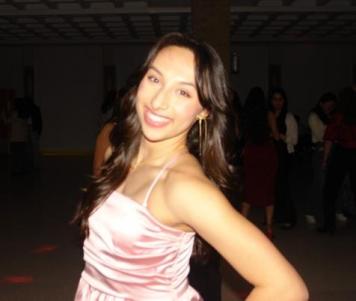 Hey guys! My name is Tara, and I’ll be starting my first year in the Bachelor of Health Sciences Program. I was born and raised in Winnipeg, which is considered a big city in Manitoba, but feels modest compared to the behemoths that are Toronto or Vancouver.
Hey guys! My name is Tara, and I’ll be starting my first year in the Bachelor of Health Sciences Program. I was born and raised in Winnipeg, which is considered a big city in Manitoba, but feels modest compared to the behemoths that are Toronto or Vancouver.
Winnipeg’s unique spirit truly shines during one of our favourite traditions, the Winnipeg Whiteout. When the Jets make the NHL playoffs, thousands of people gather downtown dressed in white, despite icy roads to cheer on the Jets as one massive community.
Growing up in Winnipeg was comfortable; it’s large enough to offer opportunities, but small enough that you can feel seen. Right now, I feel a bit like a ‘Winnipeg among metropolises’: adjusting to the pace and size of my new world but secure in the strengths I bring with me.
For example, I earned my blackbelt in taekwondo at fourteen and later coached kids in the sport. I lead the Human Rights Club, played varsity rugby, and somehow made time to travel for national scholarship interviews. I learned how to balance all my roles, and managed it well for the most part, except when it came to academics.
Don’t get me wrong, I cared about my grades! I did great in my biology and humanities classes. I could pick up material quickly and memorization and analysis were second nature to me. However, problem-solving felt decidedly unnatural. If I hadn’t memorized a method, I often froze on tests, unsure how to start the problem. The gap between learning information and applying it was frustrating. Still, I thought I had to take AP Calculus to apply to Ontario universities. (This turned out to be untrue, but whatever no knowledge was wasted.) AP Calculus did not go as smoothly as I had planned, but it forced me to confront my limitations.
As a young learner, I was placed in ‘gifted’ classrooms, breezing through schoolwork so easily that I began to think my intelligence was an inherent trait. Hitting those roadblocks in math was a humbling shock, but it also gave me my first real lesson in resilience. Although I adopted strategies to improve my grades such as attempting a growth mindset, attending extra help, and scheduling tutors for practice, progress was slow. Reflectively, I realize growth mattered more than speed at the time.
Unfortunately, not all stories have epic montages where the main character miraculously learns to enjoy calculus. Part of how I solved my math dilemma was by pouring energy into extracurriculars, university applications, and scholarships. At the time, I thought of it as compensating for my weaker grades, but in hindsight, I can appreciate that well-roundedness and being a student who valued impact beyond the classroom made me a better human being. That balance is part of what got me here, to my dream program at my dream university.
That said, finding a balance between life, extracurriculars, and academics will be more difficult in a self-directed environment. While I have managed to spare myself calculus, chemistry is a huge aspect of health sciences, and I want to approach it differently this time. I plan to make use of the many resources and tools offered by Student Academic Success Services has, not just to “work harder” but to build habits for problem-solving that I can build on.
Asking for help can feel uncomfortable. As someone with single-sided deafness, I understand what it's like to feel as if you’re the only person who is struggling while everyone seems to manage the workload just fine. That also means I know just how important it is to advocate for yourself when you need to. The beautiful and terrible thing about university, as students, is that we are our own champions now. So, while we might sometimes feel like a ‘Winnipeg among metropolises’, we must remember that we are not without our not alone. Communities are built by individuals who show up, reach out, and try– which is exactly what I hope to do this year.